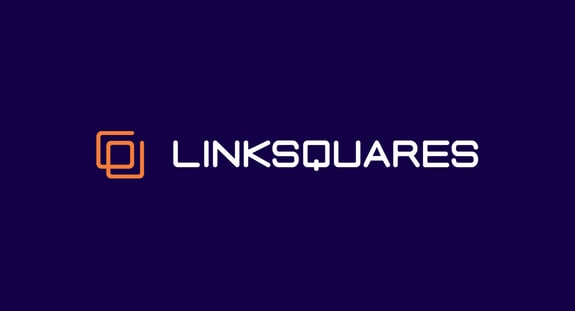All companies have one thing in common: the need to leverage technology in order to gain a competitive advantage. Software products allow businesses to streamline tasks and optimize processes, thereby giving them an edge in the marketplace.
Choosing the right software solution is often challenging, and managing full adoption and ease of implementation can be even more so. Whether it’s a project management application, CRM, eSignature tool or contract software, you want to be sure you buy the right tool for your organization. Below are some tips for a successful software buying and implementation project:
Getting Executive Buy-In
If you want to be sure to have full engagement of your executives, you’re going to need to get them involved early in the process. While getting their full engagement can be challenging, there are ways to do it.
You will essentially need to include them in the ‘needs assessment’ as well as get them to help in the design/customization process. This involvement will not only increase their understanding of the project, but encourage them to support your efforts with the necessary resources.
Creating A Budget
What solutions will be available to you have everything to do with your budget. You’ve got to have a realistic budget before you even begin speaking with vendors. Here are some basic, but critical, steps to creating your project’s budget:
- Have a Vision
In the beginning, you may not know every bell and whistle your software must have, and that’s okay. But you should have an overall vision of your goals and a sense of your requirements. Focus on WHO will be using this application and WHY the solution matters to your business. WHAT is your success criteria? Define the x, y, and z that must happen in order for you to get a win.
- Ask for Budget Estimates
Once you’ve written down your vision and requirements, you’ll want to take these to your chosen software vendors for an estimate. Ask them to qualify any numbers they give you.
- "Compare Condos with Cabins"
This step cannot be overlooked if you want to make an educated decision. The estimates that you now have in your hand are not standardized. You won’t be able to simply compare these varying costs and go with the cheapest one. The different builds might be as different as apples and oranges, or, to put it in more ‘build terms’, one price may be for a luxury condo in Madrid while the other for a cozy cabin in Vermont.
When comparing estimates, try to understand the proposal. Will the software vendor be writing a custom application from scratch or leveraging an existing platform like Salesforce? Are they doing all the work or off-shoring it? How many hours will the project take and exactly what is included in those hours? Ask each vendor to put these answers in writing for you.
Key Considerations
Beyond budget, there are other key considerations for ensuring you choose the right software.
Price vs. Value
You’ve taken the time to figure out price and budget, but money shouldn’t be the only factor in determining the software you choose. You’ve got to correlate the solution’s price with its intrinsic value.
Spending more money on a laundry list of extra features you’ll never use will not give you an advantage in the marketplace. Plus, added features may make implementation and adoption an even longer process. Think and plan before choosing customizable and functional features.
What are the Agreements?
Does your particular piece of software come with any special terms? If so, are there any penalties for ending contracts early? Are you expected to commit to a big upfront cost for implementation? If so, be sure you have definite timelines and costs in place before making a final purchasing decision.
What kind of SLA guarantee does the company have? Never trust a company that doesn’t stand by their products. If the software has bugs, will they fix it? And will they fix any problems that may be unique to your organization’s use of the software and not just the big problems that most users run into? Will there be a routine schedule for maintenance updates? Will you know about these updates ahead of time? The more answers you have, the better able you’ll be to make the right decision.
Support
During what hours can you get support and how can you get it? Is phone support offered or is everything done by email or ticketing system? If the latter two, what is the anticipated response time? It’s critical you get the support you need when you need it and in a way that works best for you.
How to Define the ROI of Your Project
Implementing any software rollout can be risky financially. And, unless you make all necessary considerations, the end result can be a loss of time and money (and unhappy management).
- User Interface – Oftentimes there is a huge (costly) discrepancy between software design and actual usage. Consider starting small with just one or two of your departments to get out all of the kinks, before rolling out a bigger implementation.
- Employee Buy-in – It’s critical that employee buy-in be a main focus when buying software. After all, the employees will be the main users of whatever software is being designed and implemented. To help them not feel blindsided and embrace the technology changes, get them in on the beginning planning stages and ask for input as far as features and UI design.
- Proper Planning – Set realistic timeframes to ensure implementation success. Management should allot the minimum time required for users to install, train, and get up to speed with the product. While too much time away from actual operations isn’t good for business, setting unrealistic and inflexible deployment schedule is not good for the overall project.
Whether as part of compliance mandates or desire for more process efficiencies, selection and deployment of software should be well-thought-out and planned before taking the leap. In the end, IT solutions are supposed to be just that – solutions to barriers that limit the opportunity for growth.
If you’re in the market for a contract analysis solution, LinkSquares offers true value for the affordable price. Be up and running in 30 days instead of 6+ months with ease of implementation and full support from our helpful staff.
Have questions? Contact us. We’d love to help.
Subscribe to the LinkSquares Blog
Stay up to date on best practices for GCs and legal teams, current events, legal tech, and more.


